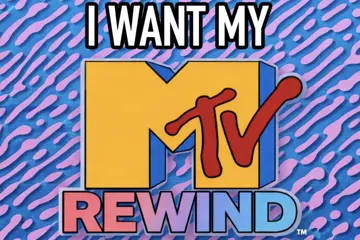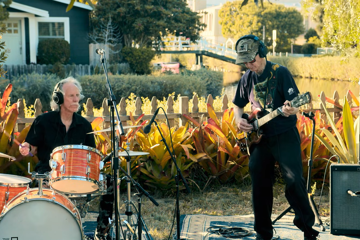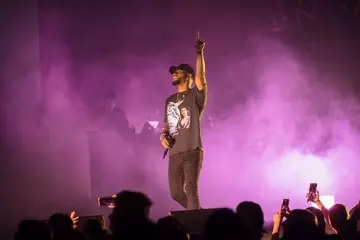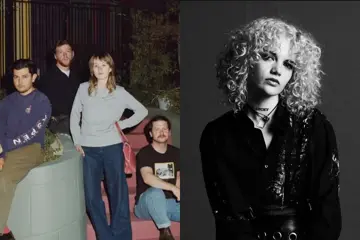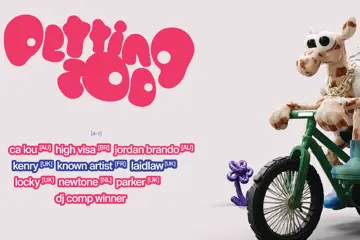The Telstra-housed MOG launched last week, introducing another major player to Australia's suddenly-crowded music streaming scene. Perhaps without the same fanfare as Spotify, or the media partnerships as Rdio before that, MOG is now available for Australians to use, with a 14-day free trial giving initial access to everyone.
MOG was originally a blog and social network for music before taking up a subscription-based music streaming service in late 2009. Australia is the first market after America that MOG has launched in, and they've done so in partnership with telecommunications giant Telstra.
Speaking to theMusic.com.au today from Hawaii, Adam Good, Telstra's Director of Digital Media and Content claimed that they'd looked at "all the providers" but were eventually impressed by MOG's "technology road map", which matches their plans for multi-platform content, as well as high quality files and the simplicity of use.
Although hesitant to give exact numbers of initial take-up, he said, "We're very comfortable, we've got a target over the next 12 months and it hasn't even been a week yet. We have some expectations of what we want. [When] we get through the 14 day free period it will be interesting to see how we go converting numbers."
Don't miss a beat with our FREE daily newsletter
He admits that they have launched into the market "a bit late" behind their streaming competitors, but feels that there's a point of different between the highly-social Spotify and Rdio approaches and the comparatively private MOG experience.
"When you are evaluating competitors like Spotify you need to take your time and see where they're going as well. You also want to make sure that you have a team that have got good relationships with the music industry in terms of getting full, rich Australian catalogue in place and having the right relationships with the music industry.
"We are a little bit behind," he said. "We just want to get the right market for us and get the right price point for Australia. We're coming in a little bit later, we're not too worried about it.
"Spotify's probably been out for a month or two and it has a heavy connection into Facebook. That's actually quite interesting in seeing how that behaviour drives usage. Some people quite like the heavy Facebook integration and some people really don't, they'd much rather have music as a personal thing and have the ability to share playlists when they want to. Facebook and Spotify are very heavily linked, it's hard to switch them on and off, so it will be interesting to see if there's any backlash for that over time."
With its history as a music blog - and despite its history as a social metwork - MOG pushes this editorial curation format of new music discovery, while other services largely rely on user habits or third-party plug ins from labels or media.
It does, by comparison, appear quite simple. You don't sign in with a Facebook account and sharing albums or playlists to social media channels is nowhere near as prominent. At the moment there's no ability to embed playlists into websites and there are no corporate accounts. You can't follow theMusic.com.au or a record label's account for recommendations because only individuals have accounts. In fact, there's really no interaction between other MOG users as well. It is a very private experience. There are charts, editor's picks and a computer-based curation system that will adapt to your music habits.
"It has these great computer curation tools to learn about your behaviour and give you recommendations for music," Good said. "There's also people behind the product, there's good editorial and editors, which is quite different to the other streaming products - the ability to be always curating based on music editorial."
As far as label relationships go, MOG has developed them and Telstra - like every other service so far - were hesitant to give out exact details of the deals between labels.
"The relationship with the labels all come through Mog," confirmed Good, "most of the labels are on a similar deal in terms of a 'per-stream' type of arrangement, some have some other flexibility behind that. I think the disruption in the music industry because of digital has been such a huge thing and the music industry has been battered and bruised with people accessing illegal music for some time.
"Our research showed that 50 percent of Australia hasn't bought a CD in the last 12 months and you get to the young demographic and they haven't even spent any money on music, so the whole industry has a lot to say about music streaming. But from my point of view this is probably the first solution that moves the music industry back into a legal situation and I think over time the industry will see the benefits of that."
The service is open to all Australians, but Telstra user have the added advantage of having their music streaming unmetred. That is, Telstra ISP customers won't have music streamed through MOG count towards their overall downloads.
"We're there to support the music industry so we want to make sure we can maximise a model for them that makes some sense," he said.
As previously revealed in other articles on music streaming, ARIA are currently in negotiations and planning for a music streaming chart before the end of the year and Good hopes that MOG will be a part of it.
"It's something that we have spoken about and the algorithms on the other end are very interesting. And if we can find models that the music industry support then we'd be happy to play in that space. It has been a conversation, I think the music industry as a whole is just getting their head around music streaming and what it all means."
MOG has been the last streaming service that the industry was waiting on, and so now consumers have a choice of streaming service - across Spotify, Rdio, MOG, rara and JB Hi-Fi Now - the fierce battle for market share will really gain momentum.
"Going on most things in industry, it tends to whittle down to two or three players, so that may be the case here," Good estimated. I think it will be interesting how the industry evolves from it. Interestingly enough we've still got BigPond music and we've still got the downloadable option - there are people out there who just want one song and just want to pay for one song and store it on their phone.
"It will be interesting to see how all the different permutations of music come about, but one thing that we're excited about is it's legal now, so people can have devices out there with legal music on it, that's got to be a plus for the industry."
There are basic ($6.99 per month) and premium ($11.99 per month) plans for MOG, with premium accounts providing access to home, mobile and mobile offline streaming.


